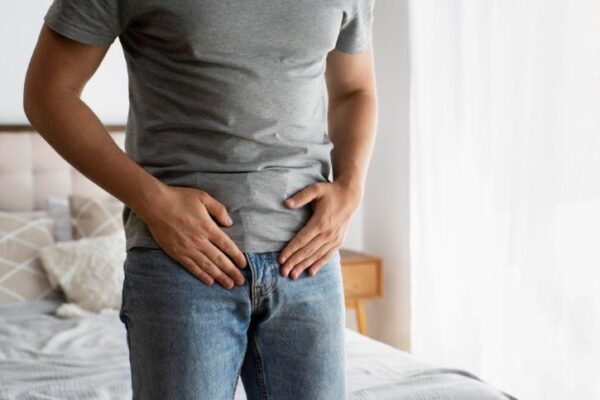5 Ways To Help Reduce the Risk, Growth and Severity of an Enlarged Prostate (BPH)
5 Ways To Help Reduce the Risk, Growth and Severity of an Enlarged Prostate (BPH)

Here are 5 ways to help reduce the risk, growth and severity of an benign prostatic enlargement – an enlarged prostate.
Benign prostatic enlargement – also known as benign prostatic hypertrophy or simply abbreviated as BPH – is a gradual enlargement of the prostate. This is common in most men as they get older, and although it is benign it can be quite troublesome, causing all sorts of issues with urination due to compression of the urethra and obstruction to the flow of urine.
The two main risk factors for BPH are age and heredity, both of which are unavoidable. It is a very common condition, affecting roughly 9 out of 10 men by their 80s. That being said, there are some lifestyle factors you can consider to help reduce the risk and growth of the condition.
While BPH rarely shows any symptoms in men younger than 40, it is important to start thinking about these lifestyle factors early, as they are great for looking after the health of your prostate, and other important body parts. Let’s take look!
Eat Plenty of Fruits and Vegetables
One of they key risk factors for an enlarged prostate is inflammation, so it is important to include plenty of foods with anti-inflammatory properties in your diet. This includes plenty of fresh fruit and vegetables – they are an excellent source of antioxidants, vitamins, minerals, and fibre, all of which have fantastic anti-inflammatory properties.
Green leafy vegetables are are rich in antioxidant, and are especially important. So are common fruits like tomato, avocado, and apricots; and vegetables like bell peppers, broccoli, cauliflower, kale and brussels sprouts.
Eat Healthier Fats
If you do consume animals proteins, looks for those that contain healthy fats, such as monounsaturated fat and omega-3. Food high in saturated fats are linked with obesity, which is a key risk factor for BPH, whereas those rich in monounsaturated fat and omega-3 are very good for you.
These include cold water fish like salmon, cod, mackerel, tuna, and sardines. If you’re not a fan of fish, you can find healthy fats in egg yolk, avocado, chia seeds, walnuts, flax seeds, almonds, cashews and soybeans. Avoid butter too! Instead cook with olive or canola oil.
Limit All Irritants
There are a number of things that can irritate your prostate and increase the severity of BPH symptoms. Modifying your diet and lifestyle to limit these irritants is very important.
This includes reducing alcohol intake to no more than 1 or 2 drinks daily, quitting smoking, cutting out caffeine, spicy and salty foods, avoiding over-the-counter antihistamines and decongestants, and managing stress and blood sugar levels.

Consider a Plant-Based Diet
Shifting to a plant-based diet is a great way to implement more fruit and vegetables into your diet. It is also an effective way to give up eating red meat, which is high in saturated fat and can increase the risk of BPH. Plant-based protein, such as soy, beans and lentils, is also associated with a lower risk of BPH, whereas common animal proteins increase the risk.
Do Plenty of Exercise
Obesity – especially excess weight around the waist and hips – is closely linked with BPH. So, in conjunction with a healthy diet, it is important to stay fit and active to promote good prostate health. Studies suggest that regular exercise can have benefits for your prostate and decrease the risk of BPH. Even light-moderate exercise, like such walking or jogging, will help. The key is consistency. A well-rounded exercise regimen that includes aerobic exercise and/or resistance training all or most days of the week is highly recommended.
For those looking to reduce the severity of BPH symptoms, regular Kegel exercises to help strengthen the pelvic muscles is a great way to help control incontinence. Kegel exercises are easy and can be done anywhere. Simply clench your bladder, as though you are trying to stop urine flow, hold for 5 seconds, and release. Doing 2 to 3 sets of 10-20 Kegels each day can have fantastic benefits.
Treating Benign Prostatic Hyperplasia with Urology Specialist
Dr Arianayagam has an extensive experience in BPH treatments such as TURP, laser prostatectomy and Urolift.
If you have any questions regarding BPH or prostate surgery, or would like to book an appointment, please feel free to contact us on 1300307990.

Why Does Testicular Pain Persist? Common Causes to Know
Testicular pain is relatively common; however, when it becomes severe and long-lasting, there may be some cause for concern. This…

Everything You Need to Know About Sperm Health
It is not uncommon for men to have troubles with their sperm production, or to develop a sperm disorder. But…






